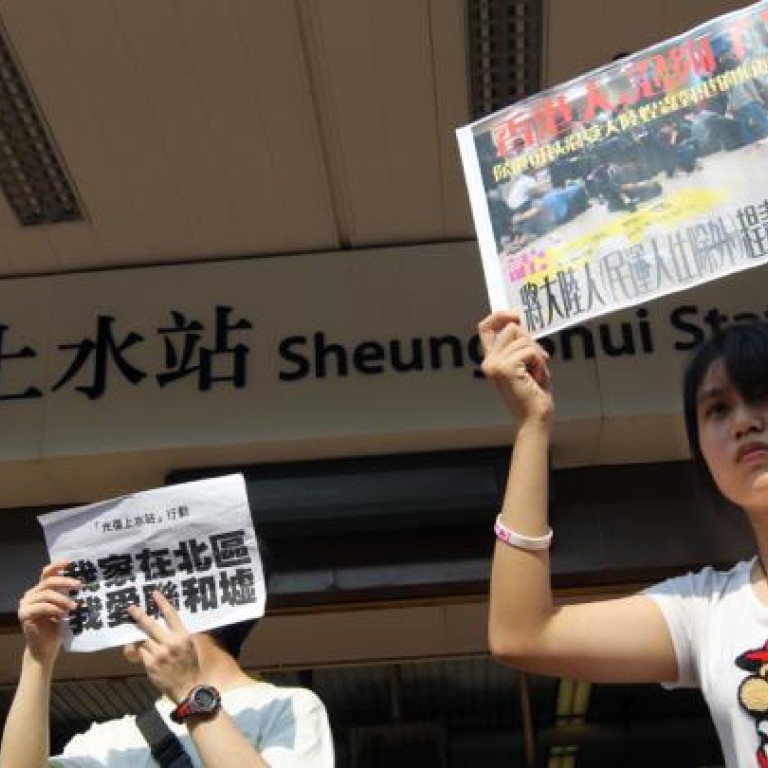
Welcoming jingle hits a sour note when it comes to unwanted visitors
HK can't be expected to smile and stretch outits hand to the hordes of parallel traders
Y.
This Hong Kong Tourism Commission theme song was once a hit, thanks to Canto-pop star George Lam Chi-cheung. He was appointed to be the city's hospitality ambassador to help promote tourism.
The song has quietly faded away over the past few years. Is it a sign that we now have more than enough tourists?
Whatever the answer, a recent train ride to the border convinced me we do have too many visitors who are parallel traders.
The moment my friend and I arrived at Sheung Shui we saw big crowds packed in and around the station. Long queues of parallel traders almost besieged the station with piles of milk powder, diapers and iPads. So much for the much-publicised crackdown on such activity just before the New Year.
In fact, the operators have now spread their tentacles from Sheung Shui to inner satellite towns like Tai Po and Sha Tin. No wonder calls for more stringent border control are getting louder.
Surprisingly, Shenzhen Mayor Xu Qin recently rejected the idea that his city should restrict issuing "multi-entry" visas to its residents. He claimed that "the [parallel trading] situation has been improved" after joint efforts from both sides.
Security chief Lai Tung-kwok soon echoed Xu by dismissing the suggestion that the multi-entry visa arrangement be scrapped. He argued that "most of the Shenzhen residents come to Hong Kong for pleasure" and restricting travel would affect normal exchanges between the two cities. He suggested that more spot checks along the railway could help.
In one recent join operation by the police, immigration and customs, about 100 people were arrested for allegedly hiring illegal labour, breaching Hong Kong immigration regulations, and theft. But none of the offences was related to parallel trading because it is legal in Hong Kong.
Parallel trading has not only become a great nuisance to residents in the Northern District but also has intensified Hong Kong-mainland tensions. Prices for daily necessities keep soaring, and local mothers have trouble getting milk formula for their babies.
What can and should the government do?
Various "sources" leaking messages to the media said the two governments would review visa arrangements. One possibility would be to identify people travelling frequently to Hong Kong without "proper reason", put them on a blacklist and restrict their entry.
But apparently neither Hong Kong nor Shenzhen want to take such action or even consider it. It seems they are intent on ensuring the "normal exchange" of people. Our security chief even said that 60 per cent of the parallel traders are Hongkongers. He might have forgotten that it always takes two to tango. Parallel trading would not be booming if it involved just Hongkongers.
Chief Executive Leung Chun-ying has repeatedly expressed his concern, and it is up to him to raise the issue with mainland authorities. Tougher visa controls would be a sensible solution, but of course it requires political courage from both governments, especially from the Hong Kong side.
Tourists coming to Hong Kong might be glad to hear Ah Lam's pleasant song again. But Hong Kong people will only say hello, and reach out their helping hands with big smiles, to real tourists.

